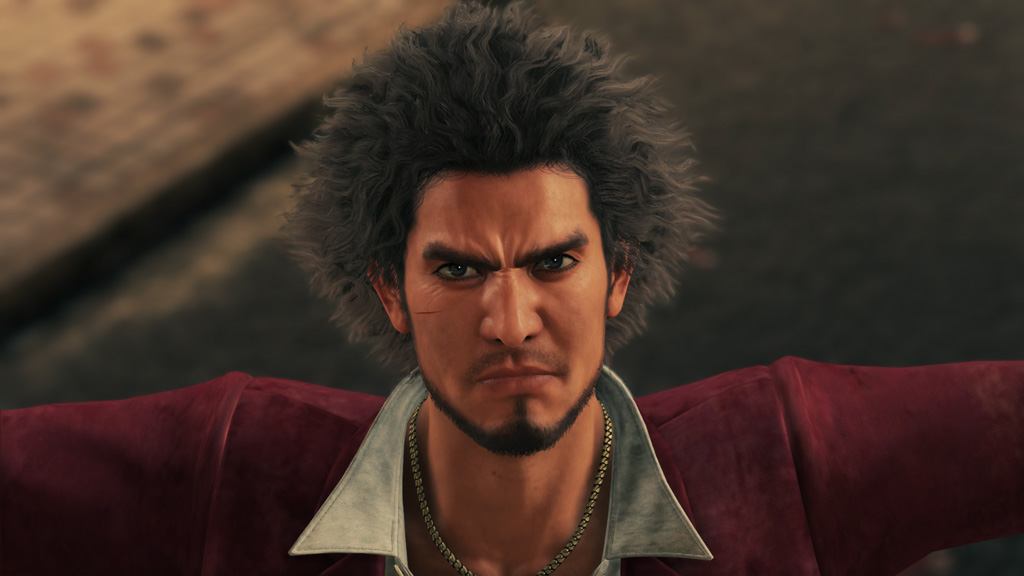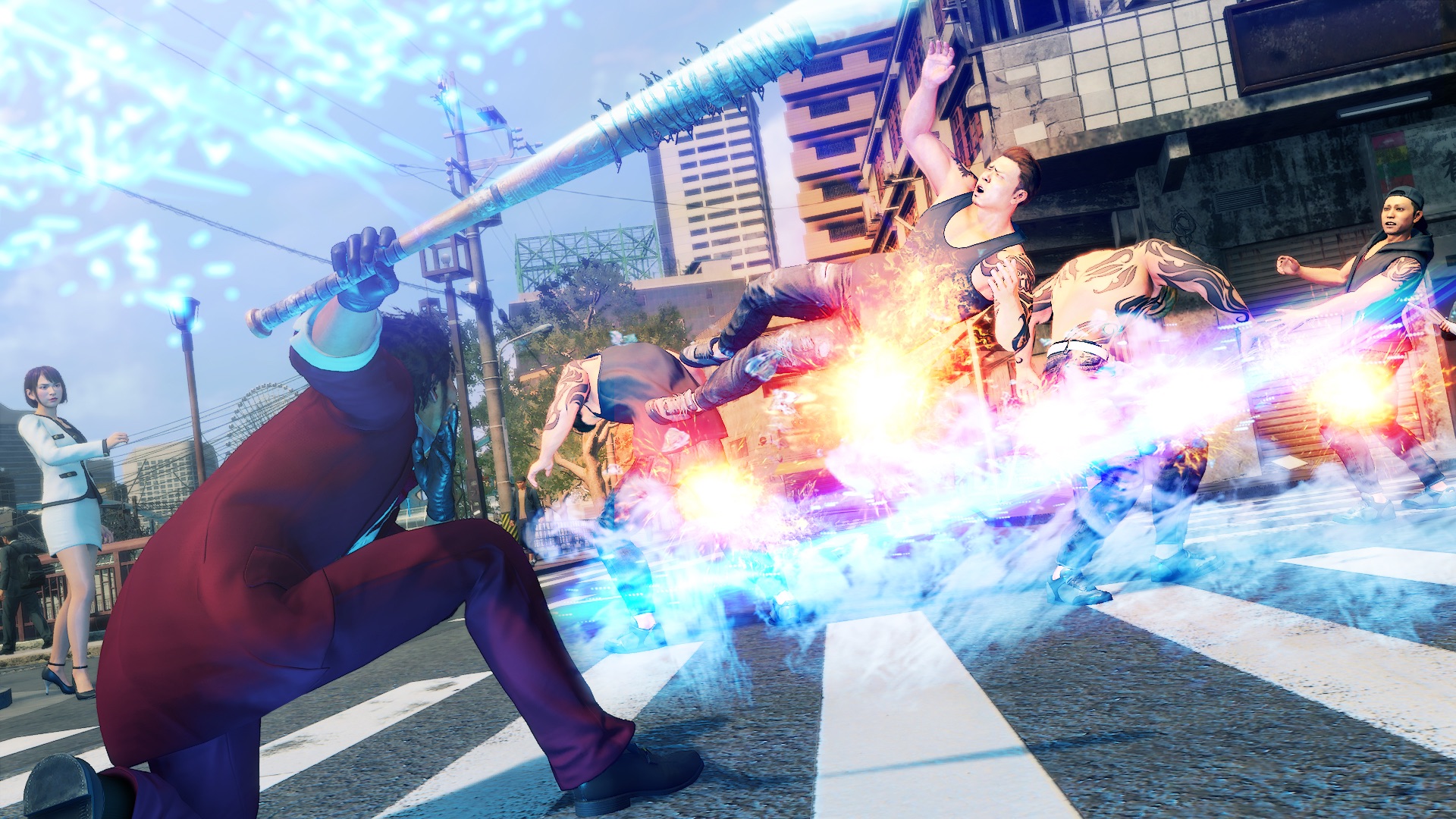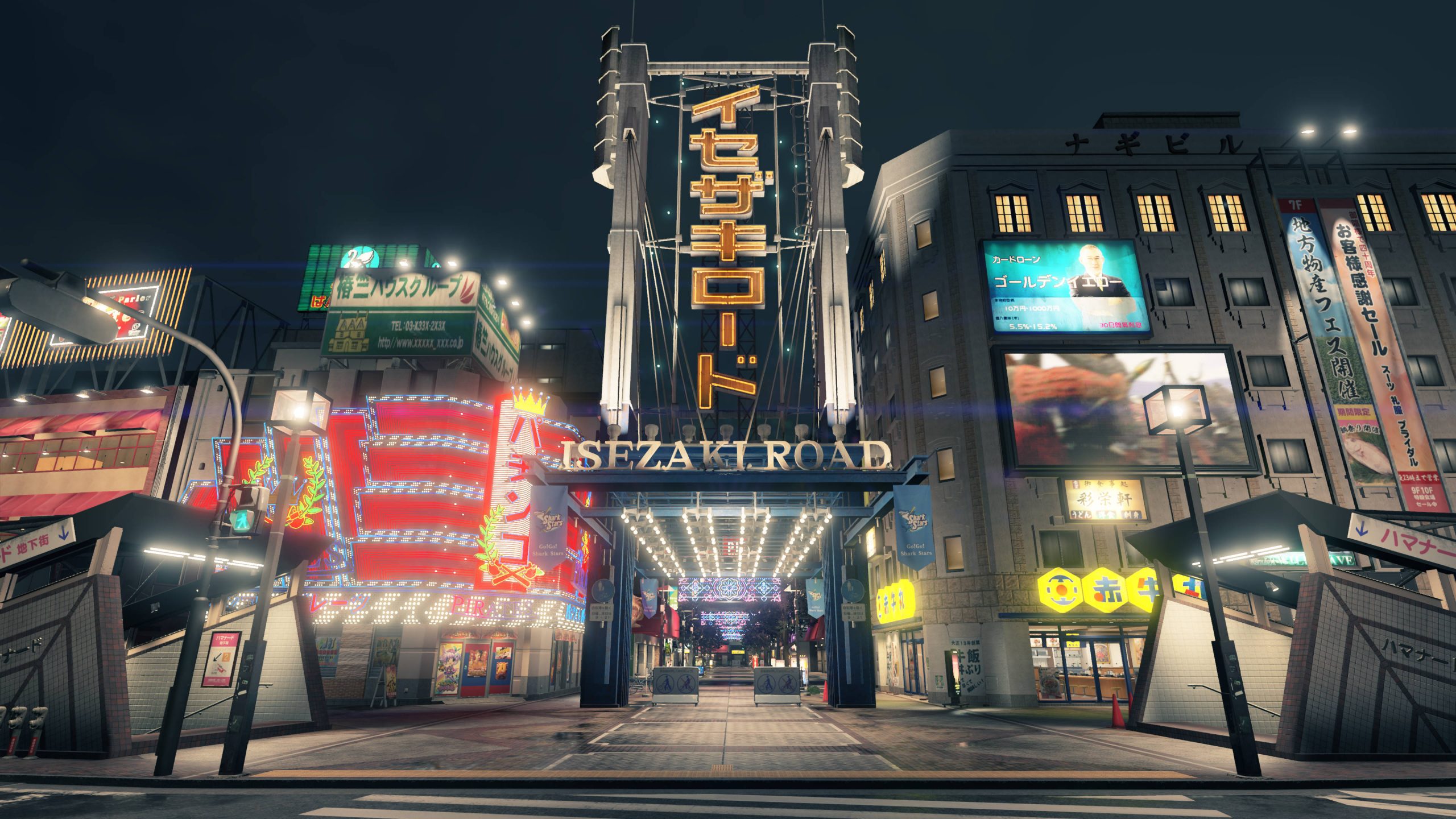The Yakuza series may not always come to mind first when you think about long-running, storied RPG franchises, but it has been around for quite some time. Spawning eight main entries and just as many spinoffs, with a couple remakes for good measure, the series has become known for its gripping crime drama stories, zany side content, and beat-em-up combat. Previous games in the main series have toyed with RPG-lite mechanics, but developer Ryu Ga Gotoku Studio decided that their latest entry, which features a brand new protagonist and city to explore, would go RPG full tilt. Turn-based combat, a job system, party members, crafting and equipping gear — the whole shebang. Yakuza: Like a Dragon is the series’ first step in a new story arc and a new gameplay direction, and it is simply a fantastic experience, especially for fans of classic JRPGs.
It’s 2019, and the Tojo Clan has fallen, a fact that’s hard for series newcomer Ichiban Kasuga to accept after spending 18 years in prison for a crime he didn’t commit. Adding to that shell shock is the news that the Omi Alliance, longstanding rivals of the Tojo Clan, has finally taken over Kamurocho and that Ichiban’s old patriarch and father figure, Masumi Arakawa, helped them do it. The opening chapters of the game are a whirlwind of exposition, as we get introduced to Ichiban’s not-so-successful life as a yakuza, follow him through his stint in prison, and reel with surprise and confusion when Ichiban finally catches up to his patriarch, only for Arakawa to shoot him. Ichiban wakes up in a most unexpected place — Yokohama’s Ijincho district — and promptly starts making waves with the local gangs as he tries to piece together what’s going on. In true RPG fashion, things start out slow, and it’s difficult at first to see how Ichiban’s floundering about in Ijincho relates to the mystery of his patriarch’s betrayal. But the pieces do eventually come together, and by the second half of the game, the stakes are high and highly personal. The ending left me in tears, but I was also very satisfied and excited to see where the series will go with this new protagonist and gameplay style.
The cast of Yakuza: Like a Dragon is overall strong and fun to watch. Ichiban is a fantastic new lead who is immediately endearing not just because he is a lovable dumbass who cares about his friends but also because he’s an avid fan of RPGs, specifically Dragon Quest. Yakuza: Like a Dragon wears its inspiration on its sleeve, namedropping Dragon Quest frequently and featuring systems and elements that are clear homages to the classic series and other JRPG greats. But it’s Ichiban himself, with his desire to become a hero and his overactive imagination causing him to see bad guys transform into wacky caricatures in battle, that ties it all together and makes him that much more relatable. His core group of friends is equally lovable, particularly homeless bum Nanba and spunky bartender Saeko. The remaining party members don’t get quite as much development, and the game oddly excludes them from certain cutscenes. However, no one gets shafted quite as much as Eri, an extra character you unlock by doing the business management minigame who never appears in a main story cutscene after she’s introduced. There are some hits and misses among the antagonists too, but the primary bad guy is an excellent opponent for Ichiban and the sort of villain we deserve in 2021.

But it’s not just the characters that are compelling in Yakuza: Like a Dragon. The game tackles a lot of pressing real-world issues that we don’t often see RPGs handle. Homelessness, elder abuse, the gray area of sex work, xenophobia, and political corruption wrought with the help of fanatical sycophants — sound familiar? — are some of the major themes the game touches on. It’s kind of refreshing to play an RPG whose backdrop feels more grounded in reality and whose main characters are all adults. That’s not to say that the game always does a good job of fully exploring these issues, but I appreciate that they are present nonetheless.
Of course, half the fun of any Yakuza game is simply running around a dense, incredibly detailed, and authentic Japanese city. This time, the main focus is on Isezaki Ijincho, a fictionalized recreation of the real-life Isezakicho district in Yokohama. The map is vast by Yakuza standards, easily dwarfing Kamurocho and giving you plenty of room to run around beating up bad guys while you check out the local cuisine, play a variety of minigames, and meet a cast of…interesting secondary characters. There are some pretty weird hijinks you can get up to, from playing a reflex game where you bash sheep to keep Ichiban awake at a movie theater to saving a crawfish named Nancy from becoming someone’s meal so you can summon her and her crustacean buddies in battle. There’s even a Mario Kart-style racing minigame you can partake in and Persona-esque Drink Links you can build up with your party members to get to know them better. For the most part, there’s always something to do in Ijincho, but the district’s sheer size can sometimes be a hassle, especially when you want to change jobs or gather materials for crafting.
As you wander around the city completing story objectives and side quests, you’ll encounter roaming bands of enemies to fight. Turn-based combat is a big change for the series, but the experience still captures previous Yakuza games’ exaggerated style. Party members have a variety of jobs available to them, from the support-minded Musician and Idol to the attack-focused Chef and Breaker. Every skill you learn has a flair to it that fits the real-world setting, but with the over-the-top execution you’ve come to expect from the Yakuza series. Summons, in particular, are spectacular and often hilarious, though the fact that they cost money may make you play things conservatively. Battles flow in a way you’d expect from a standard turn-based combat system; Yakuza: Like a Dragon certainly doesn’t reinvent the wheel, though most attacks and blocking involve timed button presses to keep things feeling a little like the game’s beat-em-up predecessors. Overall, it’s a fun little system that doesn’t overcomplicate things and simply lets you enjoy using baseball bats, handbags, and office supplies to dominate your foes.

There are some issues with the combat in Yakuza: Like a Dragon, though. First, the balance of difficulty is off-kilter. For most of the game, combat is almost too easy, and there’s no incentive to intentionally grind levels because you really don’t need to. But one late-game chapter in particular essentially forces you to do a fair amount of “optional” grinding if you want to beat a boss without tearing your hair out. This lopsidedness can be a tad frustrating. Another issue is the targeting system. The game seems to want to cycle through targets based on who’s in front of the camera at any given moment. This works most of the time, but sometimes you try to target a specific character and the game acts like they’re not there, even if you adjust the camera. Related to this is the issue of AOE attacks, which can be unreliable because party members and enemies randomly move around the battlefield. There is something to be said for strategically waiting for the opportune moment to launch an attack, but when you have no control over movement, it doesn’t feel like strategy but rather luck. Finally, getting a game over when Ichiban dies is annoying, full stop.
Outside of combat, the aspect of Yakuza: Like a Dragon that needs the most work is definitely the dungeons. There are a handful of them in the game, and while a few are fun to run through, most are pretty dull and basic. There are many dingy sewers and the same music gets used for several different dungeons, which is a little disappointing. One particular dungeon in Chapter 6 is entirely too long, and while some dungeons have midpoints where you can rest and save, none of them let you save right before the end boss. Even the last dungeon of the game doesn’t let you save before starting the final boss sequence. To be fair, I’m nitpicking a little. For their first attempt at making Yakuza into a full-blown RPG, Ryu Ga Gotoku Studio has done an admirable job. There are just a few things they need to work on for the next entry.
Performance-wise, Yakuza: Like a Dragon runs beautifully on PS5. The default graphics setting is 1440p at 60FPS, with an optional high-resolution mode that runs at 4k and 30FPS. I personally feel that the default mode is the best of both worlds. It’s a nice resolution bump from the 1080p the game ran at on PS4 Pro, and even though it’s a turn-based RPG, 60FPS is still a very smooth and enjoyable experience that’s hard to give up for extra resolution. Load times are much improved as well, making transitions smoother and easing the pain of the frequent fast traveling you’ll likely engage in.

The visuals themselves, particularly when it comes to Ijincho and the other cities you visit, are impressive and make you feel like you’re living in a little pocket of Japan, from the loud neon lights of a main thoroughfare to a narrow side street plastered with signage and small shops. In dramatic cutscenes, character models look great and move beautifully. Standard cutscenes involve more stiff animation, and in text-only cutscenes the engine has a weird habit of cutting off animations if you progress through dialogue too quickly. This is a minor complaint, of course, but it can make things a bit awkward if you don’t want to wait for the text to auto-advance.
Finally, the game’s audio deserves a mention. There’s some great music on offer, particularly some epic battle themes that have become mainstays on my personal playlists. But the real star is the excellent voice acting, in both Japanese and English. The latter is noteworthy because this is only the third game in the series to feature English voice acting after the original PS2 version of Yakuza and 2019’s spinoff Judgment. By this point in the main series, it might feel weird to play a Yakuza game in English, but the cast here does an amazing job. Kaiji Tang, who voices Ichiban, deserves particular praise for his phenomenal performance — I’m not exaggerating when I say it left me stunned. Hopefully, the positive reaction to English voice acting in this game and in Judgment means we’ll be able to look forward to dual audio in more Yakuza games to come.
I originally intended to wait for the PS5 version of Yakuza: Like a Dragon to start my first playthrough. When the PS4 version came out, however, I found I couldn’t wait, and I impulse bought it. I’m glad I did, since it ended up being my favorite game of 2020 and it gave me a story about love, loyalty, and helping those in need during a really trying time. But I’m also glad I played this game again on PS5. Not only is the experience better thanks to the higher resolution, better frame rate, and faster load times, but it’s just a damn good game that I’m happy to play multiple times. There are definitely a few growing pains in the transition from beat-em-up to RPG, but I have no doubt that Ryu Ga Gotoku Studio will address these issues in the next Yakuza game. And with the way Yakuza: Like a Dragon ends, I hope they are already working on a sequel. Because I want more!




